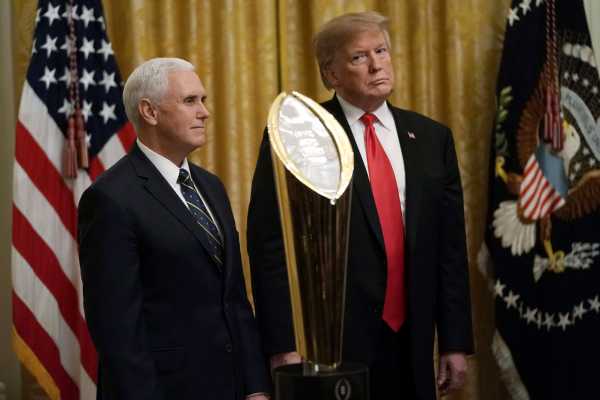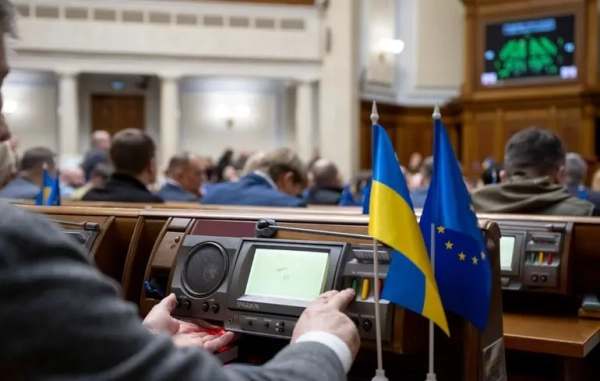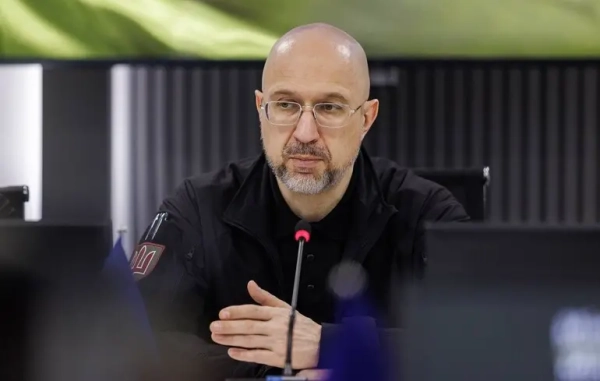
After days of publicly toying with the idea of declaring a national emergency in order to get his border wall built, President Donald Trump has backed away from the idea, seemingly deciding the situation isn’t so dire after all.
The president spent much of last week discussing the possibility of using a national emergency declaration to cobble together the funds he needs for a wall at the US-Mexico border. The federal government has been partially shut down for more than three weeks amid a funding impasse between Congress and Trump, who is demanding $5 billion for the construction of about 200 miles of barrier at the border. It looked as though Trump might use a national emergency to get out of the shutdown, but now he appears to have changed course.
“I’m not looking to call a national emergency,” Trump told reporters on Monday. “This is so simple, you shouldn’t have to do it.”
He added that he has the “absolute legal right” to declare an emergency and attempted to fault Democrats for the current state of affairs.
“The Democrats should say, ‘We want border security.’” We have to build a wall, otherwise you can’t have border security,” Trump said. “And we should get on with our lives.”
Join the Vox Video Lab
Go behind the scenes. Chat with creators. Support Vox video. Become a member of the Vox Video Lab today.
This emergency reversal is a rather abrupt about-face, given that Trump and allies spent so much time last week teeing it up. He told reporters on January 6 that there was an “absolute crisis” at the border of drugs, human trafficking, criminals, and gangs.
Vice President Mike Pence said the next day that the White House was looking into the possibility of an emergency declaration, and some of Trump’s allies reportedly urged him to go ahead with one behind the scenes. White House officials began to ratchet up language about a “crisis” in order to set the stage.
The White House reportedly directed the Army Corps of Engineers to take a look at its budget for potential funds to divert to the wall, including $13.9 billion from a disaster spending bill passed by Congress last year designed for relief projects in California, Florida, Texas, and Puerto Rico. On Thursday, before heading to the border, Trump said he would “almost say definitely” that he would declare an emergency.
Some Republicans publicly fretted about the implications of Trump declaring an emergency, warning that it might embolden future — and Democratic — presidents to do the same.
“Tomorrow, the national security emergency might be, you know, climate change, so let’s seize fossil fuel plants or something,” Sen. Marco Rubio (R-FL) said in an interview Thursday with CNBC. “Maybe it’s an exaggeration, but my point is, we’ve got to be very careful about endorsing broad uses of executive power in our republic.”
Sen. Lindsey Graham (R-SC), like Trump, seems to have changing views on the national emergency declaration. On Friday, he tweeted that Trump should declare a national emergency “NOW.” On Sunday, he tweeted that emergency powers should be a “last resort” and suggested Trump reopen the government for three weeks and then declare the emergency.
This emergency doesn’t feel very urgent
It is within the president’s powers to declare a national emergency under the National Emergencies Act of 1976, which lets presidents issue an emergency declaration under certain constraints — namely, they can only use specific powers Congress has already codified by law. There are about 130 such laws presidents can draw from.
The National Emergencies Act doesn’t offer up a definition of what counts as an emergency, meaning Trump could, conceivably, declare one. It would certainly be scrutinized and likely subject to legal challenge in court, and Congress could overturn it with a two-thirds majority in both chambers. But he could at the very least try it.
The longer Trump waits on the emergency, however, the more it undercuts his argument that there actually is one. Emergencies are, by definition, urgent. If there really were a crisis at the border that necessitates a border wall now, then it wouldn’t be a problem the president could wait days or months to solve.
This is hardly the first time Trump has stoked fears about immigration in the name of political expediency, only to later decide it might not be that big a deal after all. Ahead of the midterms, he started warning about dire threats from a migrant caravan, only to essentially drop the issue after election day passed. On Tuesday, he started to bring the caravan rhetoric back, warning on Twitter that “only a wall” will stop a “big new” caravan coming from Honduras.
To be sure, last week, Trump sort of let the cat out of the bag that he wasn’t actually that worried about a crisis at the border when he said whether he declared an emergency depended on him making a deal.
“My threshold [for declaring an emergency] will be if I can’t make a deal with people that are unreasonable,” he said.
Sourse: vox.com






